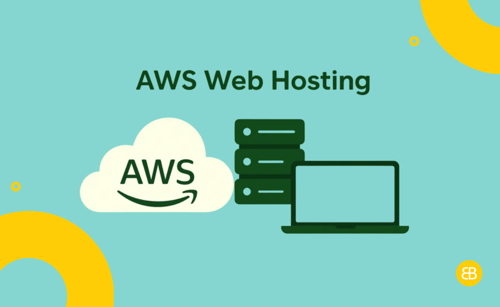AWS Web Hosting: Benefits, Features, and Best Practices

AWS Web Hosting is the practice of running your website or web app on Amazon Web Services’ cloud infrastructure. Instead of buying and patching your own servers, you rent Amazon’s elastic compute, storage, and networking, spinning resources up or down in minutes.
Why AWS Web Hosting Matters
Founders often underestimate the edge that a rock-solid hosting layer delivers. AWS offers:
-
Scalability – Auto scaling adds servers during traffic spikes and retires them afterward.
-
Cost-efficiency – Pay only for the CPU cycles, storage, or bandwidth you consume.
-
Reliability – Multi-region redundancy drives uptime targets above 99.9 %.
-
Security – Enterprise-grade encryption, firewalls, and compliance frameworks baked in.
-
Flexibility – Run static sites, container clusters, or serverless APIs on the same platform.
When to Use AWS Web Hosting
Consider AWS Web Hosting when:
-
Launching or migrating a web application.
-
Comparing hosting providers based on scalability, cost, or global reach.
-
Forecasting infrastructure needs for growth or peak campaigns.
-
Discussing disaster recovery or high-availability strategies.
-
Mapping regulatory or data sovereignty constraints.
Real-World Example
For one of our recipe-planning SaaS, we deployed the backend on AWS Elastic Beanstalk behind an Amazon CloudFront CDN. Auto scaling handled a 5× traffic surge during holiday season while keeping latency under 200 ms for 95 % of users.
Founder Insight
Don’t treat hosting as a one-time checkbox. Revisit your AWS architecture every quarter—unused instances and over-provisioned databases silently drain cash. A quick audit often trims 15 – 25 % off monthly bills.
Key Metrics & Concepts
| Metric | What It Tells You |
|---|---|
| Uptime | Percentage of time your site is reachable |
| Latency | Round-trip time from user to server |
| Throughput | Data transferred per second or minute |
| Auto Scaling Events | How often capacity is added or removed |
| Load Balancer Health | Percentage of healthy targets in each zone |
Tools & Technologies
-
Amazon EC2 – Resizable virtual machines for custom stacks.
-
Amazon S3 – Durable object storage for static sites or assets.
-
Amazon CloudFront – Global CDN for low-latency content delivery.
-
AWS Elastic Beanstalk – PaaS that handles provisioning, load balancing, and deployments.
-
Amazon Lightsail – Simplified VPS and managed databases for smaller projects.
What’s Next?
Expect deeper serverless adoption—AWS Lambda and API Gateway remove even more ops overhead. AI-powered autoscaling and cost-optimisation recommendations are also maturing, giving founders near real-time tips to stay lean while scaling.
Related Terms
- Digital Transformation
- Microservices Architecture
- DevOps as a Service (DaaS)
- Platform as a Service (PaaS)
Helpful Resources
Ready to Scale with AWS Web Hosting?
Wondering if AWS Web Hosting is the right fit for your app? Book a discovery call with EB Pearls, and we’ll chart a hosting roadmap tailored to your growth and budget.